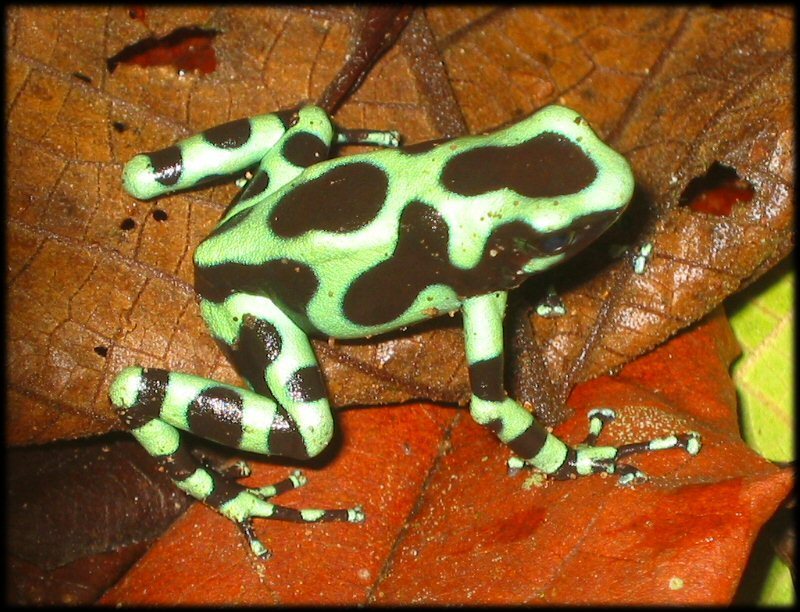

|
FROGGY AUGUST 24 2007.wmv Size : 28099.691 Kb Type : wmv |
"And if thou refuse to let them go, behold, I will
smite all thy borders with frogs:"
Exodus 8:2
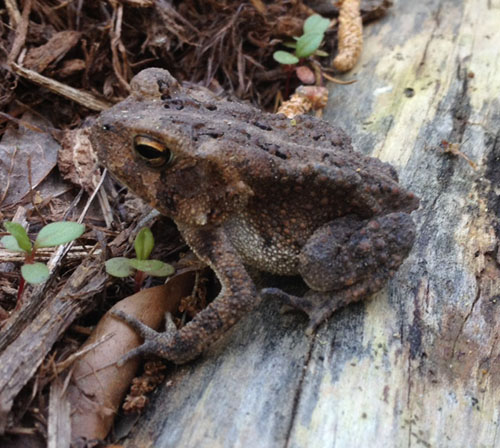
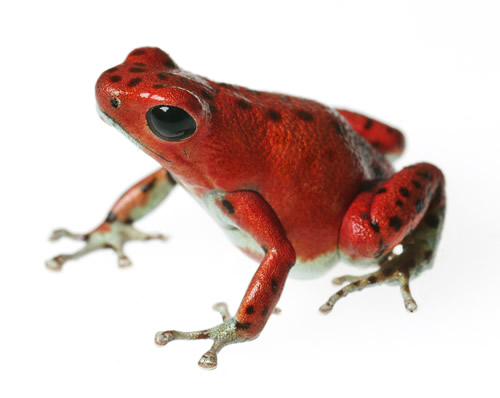
Frogs In Everything
“Again the rod was stretched out over the waters, and frogs came up from the river and spread over the land. They overran the houses, took possession of the bed chambers, and even the ovens and kneading troughs. The frog was regarded as sacred by the Egyptians, and they would not destroy it; but the slimy pests had now become intolerable. They swarmed even in the palace of the Pharaohs, and the king was impatient to have them removed. The magicians had appeared to produce frogs, but they could not remove them. Upon seeing this, Pharaoh was somewhat humbled. He sent for Moses and Aaron, and said, "Entreat the Lord, that He may take away the frogs from me, and from my people; and I will let the people go, that they may do sacrifice unto the Lord." After reminding the king of his former boasting, they requested him to appoint a time when they should pray for the removal of the plague. He set the next day, secretly hoping that in the interval the frogs might disappear of themselves, and thus save him from the bitter humiliation of submitting to the God of Israel. The plague, however, continued till the time specified, when throughout all Egypt the frogs died, but their putrid bodies, which remained, polluted the atmosphere.
The Lord could have caused them to return to dust in a moment; but He did not do this lest after their removal the king and his people should pronounce it the result of sorcery or enchantment, like the work of the magicians. The frogs died, and were then gathered together in heaps. Here the king and all Egypt had evidence which their vain philosophy could not gainsay, that this work was not accomplished by magic, but was a judgment from the God of heaven.”
PP 265, 266
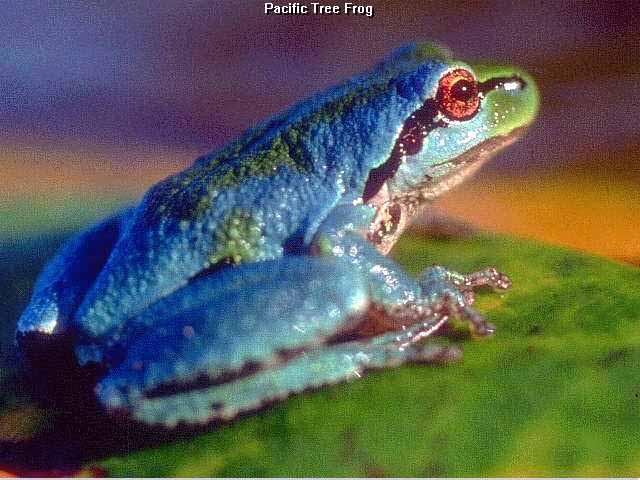
TOADS.
TOADS are pronounced by Shakespeare to be both "ugly" and "venomous," but natural history assures us that, as far as mankind is concerned, they are harmless and exceedingly useful. As to their being "ugly," if "handsome is that handsome does," then they should be considered most comely. They are certainly well-behaved; are quiet and unobtrusive; given to no turmoils; and quite refined in their tastes, choosing cultivated grounds for their rambles, which they endeavor to free from insects and bugs that would otherwise injure or destroy much of the gardener's labors.
It is said that " in one night a single toad, taking his position by a vine-hill, would destroy more bugs than thirty active men in twice the number of hours." They are provided by nature with a membranous stomach, capable of great distention, and rapid digestive organs which encourage them to active labor to satisfy their never-failing appetites.
The toad catches his prey with his tongue, which, on prying open the mouth, appears like a little fleshy eminence situated on the under jaw, with the point directed toward the gullet. The tongue is very elastic, and may be projected at pleasure from one to six or eight inches, and perhaps farther, as quickly as a flash of light. It never goes by the object, or falls short of it, as the visual axis or point where both eyes meet on the object is exactly at the distant extremity of the extended tongue. If one eye should be destroyed, it would be unable to procure food and would die of starvation. The eyes of the toad have a peculiar prominence, the globes being almost entirely outside the skull. This enables them to see their prey from all directions at the same instant.
The tongue exudes a tenacious excretion, so sticky that the slightest touch of the object at which it is thrust holds it fast, and the instant contraction of the muscles conveys the unfortunate victim to the mouth of its enemy.
Water must be introduced into the system to dilute their food, and as they cannot drink by the mouth, it is imbibed by absorption through openings in the skin.
The wart-like cells, so prominent upon the back, are many little cups capable of holding water to meet the demands of the system should drouths occur. The reason that toads are seen in such great numbers after showers is because they go out to be refreshed with pure water, which, pattering on their backs, may be quickly absorbed. This cutaneous absorption is indeed a curious provision of nature.
There are many species or varieties of toads, one of which I must mention before closing this article. It is called the pipa, and is a native of Surinam. It is a foot or more broad. The warts on the back are large cells, or nests we might call them, into which, by the assistance of the male, the eggs are deposited after extrusion.
Here they are hatched, and the young ones carried about by the mother with their heads out, enjoying the prospects, as she hops over field and moor.
The field of nature is ever open before us for study, admiration, and wonder; and however ugly or insignificant a thing may appear to the eye unskilled, when strengthened by rays of knowledge, it discovers beauties and wonders before hidden, and the mind is led to think with reverence and awe upon the Creator of all things.
MRS. A. C. PAPWORTH.
What a funny little froggy, froggy
Why do you live where it is so boggy?
And yet your skin does not get soggy
And the clouds come and make the day foggy
You eat bugs as if you were a hoggy.

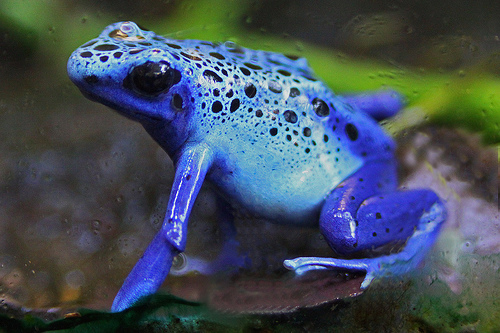
OUR BUG-CATCHERS.
WE have a garden around our house, where we try to raise fruits and flowers and peas and beans and lettuce and cucumbers, and such like. But we have one trouble; there are lots of little bugs and worms .that seem to like our provisions as well as we do, and that are always on hand to take their portion. And, in fact, they sometimes seem to want to take the whole.
Well, what is to be done in such a case? I will tell you what we do. We have several little bug-catchers, curious creatures,—in color and shape they look almost like a lump of earth, and one would hardly know them from the clods among which they travel about. The children see them about the fields or highways, and wherever they find one, they speedily pick him up, and invite him to make his home in our garden; and so they have their dwellings in holes and corners about the yard.
The little fellows have a queer way of catching bugs. They have a long, sticky tongue, though where they keep it is a mystery, as it seems to be longer than its owner. Perhaps they take a reef in it, as the sailors say, and so stow it away. But when one of them gets near a little bug, he sits and looks at him, and winks in a kind of solemn way, till all at once his mouth opens, and quick as a flash, the tongue goes out and in again, and the bug is among the missing! And then our little friend sits winking and blinking, and waiting for another bug to come that way.
He is said to have an ear for music, and to do some singing in the warm spring evenings, but we do not count- much on this; I nor do we brag much about his good looks.
His skin is not smooth, nor his complexion fair; but, for real usefulness, he is about the best kind of live stock we have on our farm ; and if people want to keep their gardens free from bugs, the best thing they can do is to get on good terms with the little bug- catchers, and make pleasant homes for the TOADS!
As a certain poet saith:—
"Don’t kill the toads, the ugly toads,
That hop around your door.
Each meal, the little toad doth eat
A hundred bugs or more,
He sits around with aspect meek,
Until the bug hath neared;
Then shoots he forth his little tongue,
Like lightning double-geared.
And then he soberly doth wink,
And shut his ugly mug.
And patiently doth wait until
There comes another bug!"
A LONG SLEEP.
ALL animals have their time for sleeping. We sleep at night; so do most of the insects and birds.
But there are some little creatures that take such very long sleeps! When they are all through their summer work, they crawl into winter-quarters. There they stay until the cold weather is over. Large numbers of frogs, bats, flies, and spiders do this.
If they were only to sleep for the night, the blood would keep moving in their veins, and they would breathe. But in this winter sleep they do not appear to breathe, or the blood to move. Yet they are alive, only in such a "dead sleep."
But wait until the spring-time. The warm sun will wake them all up again. They will come out one by one from, their hiding-places.
I have told you that this sleep lasts all winter; but it often lasts much longer than that. Frogs have been known to sleep several years! When they were 'brought into the warm air, they came to life, and hopped about as lively as ever.
I have read of a toad that was found in the middle of a tree fast asleep. No one knew how he came there. The tree had kept on growing until there were over sixty rings in the trunk.
As a tree adds a ring every year, the poor creature had been there all that time! What do you think of that for a long sleep? And yet he woke up all right, and acted just like any other toad!
Our Little Ones.
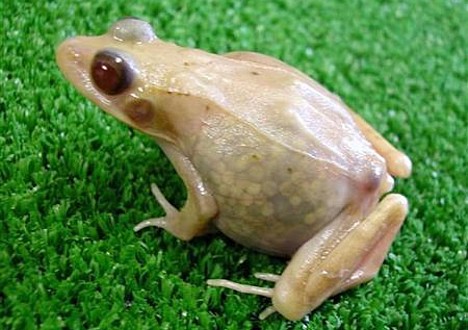
POLLYWOGS AND BABY-FROGS.
COME, my boys and do not waste girls, this early spring weather.
You 'can sit in the' house in winter and on rainy days; and no doubt you are very busy in school, and learn much from books.
But take my advice: learn something from nature too.
Shall I tell you how to do it?
We cannot well do more than one thing at a time, so we will now busy ourselves with one animal.
You know there are animals, which feel warm when you put your hand on them like the cat and dog, chickens and all birds.
There are also creatures, which feel cold to the touch—such as fish, turtles, lizards, toads and frogs.
This time we will study a cold-blooded animal. If we take a pail and a dipper and go to a pond where frogs live, we may search closely for tadpoles.
A tadpole is also called a "pollywog," though in some places it is called a "bullhead."
Which name do you like best?
When a tadpole is quite young, it looks like a comma in your book; but it would not do for a comma, because it wriggles all the time and pushes its body along through the water.
This little tadpole was once an egg— a frog's egg.
It was a very small black ball or point in a mass of white jelly as large as a green pea.
Then the jelly faded away, a tail grew out of the little ball and began to wriggle, and lo! The egg had become a pollywog.
Remember, "The pollywog is a baby-frog." But its mother takes no care of it.
It must swim about alone, and feed itself on what it finds in the water.
This baby-frog grows larger very rapidly. Every day, if you should watch him closely, you would see that he was larger than he was the day before.
He grows longer and longer.
His head does not seem to be much separated from his body. Just where his neck might be, he will put out little gills, with which he breathes by letting the water pass through them, just as a fish breathes.
When he is a little older, the gills go away, and his eyes grow large enough for you to see them.
Now that the gills are gone, the tadpole breathes air with his lungs.
Next, his body grows thicker and his tail more slender, and when he is an inch and a half or two inches long, he puts out two little legs, with little feet that have five toes; and so he swims about with his long tail and little legs, and grows larger and larger.
In a few days more he puts out two small arms, with five fingers on each hand, and he looks very much like a lizard.
And what does he next?
He waits until he has grown larger, and then, of a sudden, his tail drops off.
Now he is a true and real frog. If, in the pond or puddle, you see a tadpole, he began egg in jelly, or a comma with a wriggling tail, or a fish-like animal swimming about waiting for his legs to grow, or a tadpole with two legs, or a lizard-like creature,—in whatever state you see him, cautiously put your dipper into the water and catch him; then put him in your pail with some water and carry him home.
Do not be satisfied with one: take half a dozen or more.
At home place them in a glass dish or in an earthen one, and set it in the sun, but do not put it where the dog may lap up the water.
Do it all gently.
Then day by day watch your little captives, and you will see them grow and go through all their changes.
If you walk out in the early spring, you may find the eggs or spawn; if later, then you find the tadpoles; but the sooner you go, the more pleasure you will have in watching the growth of the little animals.
Do not hurt them nor be cruel to them.
Then you can find in the library some book which describes the frog and the tadpole, and you will like to read it after you have seen the creature itself.
When your tadpoles have become frogs, put them in the pail again; put on your broad-brimmed hats—for the sun's rays will have become powerful in the full summer—and go again out to the pond and set your captives free.
Then, if they can, let them tell the wild frogs, who all these weeks have been out in the native ponds, what a strange place they have been in, what large eyes have looked at them, what rosy lips have smiled at them, what a clatter of youthful voices they have heard—how their portraits have been taken, and how they have been petted and made much of.
And at this strange story all the wild frogs ought to lift up their hands in astonishment, and exclaim,
"Oogitragook! Oogaragook!"
Child's Companion